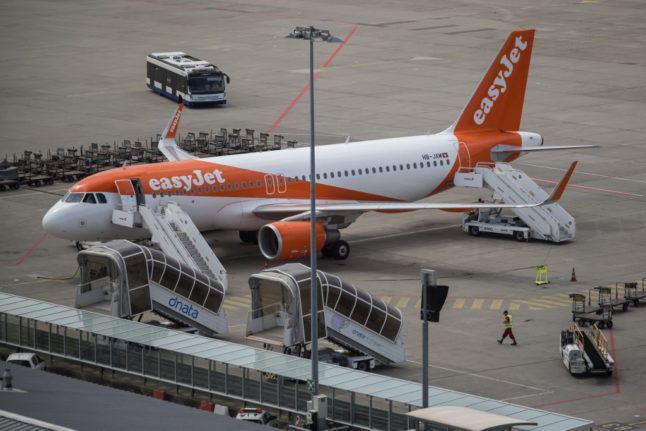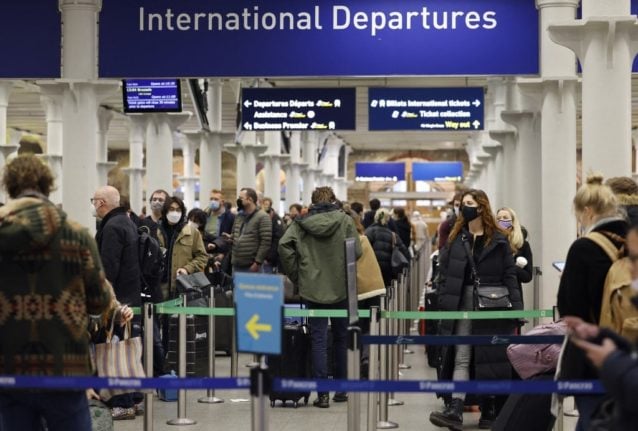In the UK, strike action looks set to impact flights, trains,ferries and even roads, while public transport strikes are affecting some parts of Italy this week.
The British strikes come in the context of widespread industrial action, involving everyone from nurses to postal workers, train drivers to border guards, all of whom are striking to win pay rises above the rate of inflation that will help them cope with the spiralling cost of living.
Although different unions are involved in separate pay negotiations, the UK government is getting involved and taking a hard line against the strikers, so unfortunately it doesn’t look like this dispute will be resolved soon.
If the strikes drag on into the festive period, they may impact those planning to travel between Italy and the UK, whether by air or overland.
Meanwhile, a series of strikes protesting the government’s proposed budget will affect travellers in several Italian regions this week – though this is unlikely to affect travel to, from or within the country nearer to Christmas.
Here’s a look at the situation so far.
Flights
In the UK, border guards belonging to the Public and Commercial Services union have called strike action from December 23rd until December 31st, with the exception of December 27th, at Heathrow (Terminals 2,3,4 and 5), Gatwick, Birmingham, Manchester, Glasgow and Cardiff airports.
The strikes will affect passport checks for arrivals into Britain, as 75 percent of passport control staff are PCS union members. The main effect will be long waits at passport control (some are predicting up to 10 hours) but there may also be flight cancellations as passengers may have to wait before disembarking their plane – something that will affect other incoming flights.

Anyone with a pre-booked ticket will be contacted by their airline if their flight is cancelled, but travellers should allow plenty of time to clear passport control. The UK government is talking about using the army to fill in for striking workers, but this will still be a much-reduced service.
Eurostar
UK-based security staff will walk out on December 16th, 18, 22nd and 23rd. Eurostar currently says that it does not expected any impact to its services from this strike.
The UK’s RMT union is also taking strike action between December 24th and 27th – although this doesn’t directly affect Eurostar because their drivers belong to a different union, strikes can see reduced running hours on UK rail lines. The company says it is “currently assessing” the impact of this action, and that passengers with pre-booked trains will be contacted directly.
However, some Eurostar passengers have reported not getting updates about earlier cancellations, so it would be a good idea to keep an eye on the Eurostar website for any timetable changes.
Ferries
The border guards strike will also affect the ferry port of Newhaven, so there could also be delays for passengers on the Dieppe-Newhaven route, but cancellations are a lot less likely due to significantly lower volume of traffic through Newhaven.
The PCS strike does not at present include staff at Dover, Folkestone, Plymouth or Portsmouth.
Channel Tunnel
The border guards strike does not include staff at Folkestone, and train drivers on the Channel Tunnel train drivers do not belong to the RMT, so as things stand Channel Tunnel services will be running as normal. They are, however, expected to be extremely busy as travellers change their plans to avoid flying. There are also possible road disruptions in the UK (more below).
Domestic travel
So that’s travel services between the UK and mainland Europe, but there are also issues to be aware of once you leave the port/airport/station in the UK.
In the UK
Rail strikes – The biggest impact is likely to be on the railways, National Rail Enquiries says: “Due to various industrial action, there will be a reduced train services across the rail network from Tuesday, December 13th 2022 until Sunday, January 8th 2023. Significant disruption is expected across the rail network. Trains will be busier and likely to start later and finish earlier, and there will be no services at all in some places.”
The RMT union is taking strike action on December 13th, 14th, 16th, 17th, 24th, 25th, 26th and 27th.
Outside of strike days, union members are also refusing to do any overtime outside of their contracted work hours – and it is estimated that this will see around 20 percent of services cancelled. A full strike timetable is not yet available, but it seems that the disruption will be concentrated on local services, rather than intercity routes.
Roads – travel by road could also be disrupted over the holidays because of a strike by National Highways control room staff. These workers have a largely unseen but important role – including monitoring CCTV, programming motorway matrix boards and co-ordinating with emergency services. It essentially means that work to mitigate the effects of crashes, breakdowns or bottlenecks will happen more slowly, leading to unusually long traffic jams on motorways and A roads.
These strikes are on a regional basis – December 16th and 17th in the north-west, north-east, Yorkshire and Humber and the north-east regions, December 22nd, 23rd, 24th and 25th for London and the south-east, December 30th and 31st for the West Midlands and south west and January 6th and 7th for the east Midlands and eastern England.
All National Highways workplaces will take industrial action on January 3rd and 4th.
In Italy
Those travelling to Italy in the coming week may face some delays or disruption upon arrival in the country, though it will depend on which area you travel to.
Strikes are planned in differing regions across Italy from Monday, December 12th to Friday 16th, with workers in most parts of the country participating for just one of the five strike days. See full details HERE.
Strikes in Italy on these dates may affect trains and local public transport, but taxi drivers do not appear to be involved in the protests.
Staff from low-cost airline Easyjet are also reportedly planning a 24-hour strike on Tuesday, December 13th, as are Italian air traffic control workers.
But from December 18th onwards, there shouldn’t be any major transport strikes in Italy until January at the earliest.
READ ALSO: Should you travel in Italy when there’s a strike on?
That’s because Italian law bans unions from organising strikes which could impact the air travel sector on certain popular travel dates (known as periodi di franchigia, or ‘exemption periods’). These include December 18th to January 7th, as well as much of August.
Anyone planning on a train journey via France should also be aware of planned strike action by French rail workers, however strike notices over the festive period are only provisional at the moment.
You can keep up to date with all the latest strike news from Italy HERE.



 Please whitelist us to continue reading.
Please whitelist us to continue reading.
Member comments